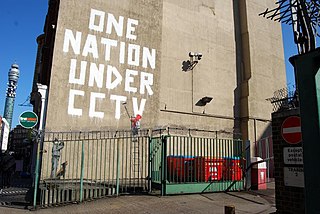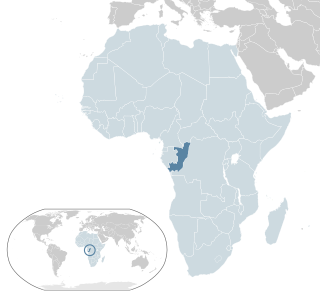
A corporation is an organization—usually a group of people or a company—authorized by the state to act as a single entity and recognized as such in law for certain purposes. Early incorporated entities were established by charter. Most jurisdictions now allow the creation of new corporations through registration. Corporations come in many different types but are usually divided by the law of the jurisdiction where they are chartered based on two aspects: by whether they can issue stock, or by whether they are formed to make a profit. Depending on the number of owners, a corporation can be classified as aggregate or sole.

Property is a system of rights that gives people legal control of valuable things, and also refers to the valuable things themselves. Depending on the nature of the property, an owner of property may have the right to consume, alter, share, redefine, rent, mortgage, pawn, sell, exchange, transfer, give away or destroy it, or to exclude others from doing these things, as well as to perhaps abandon it; whereas regardless of the nature of the property, the owner thereof has the right to properly use it under the granted property rights.

Privacy is the ability of an individual or group to seclude themselves or information about themselves, and thereby express themselves selectively.
Corporate personhood or juridical personality is the legal notion that a juridical person such as a corporation, separately from its associated human beings, has at least some of the legal rights and responsibilities enjoyed by natural persons. In most countries, a corporation has the same rights as a natural person to hold property, enter into contracts, and to sue or be sued.
Santa Clara County v. Southern Pacific Railroad Company, 118 U.S. 394 (1886), is a corporate law case of the United States Supreme Court concerning taxation of railroad properties. The case is most notable for a headnote stating that the Equal Protection Clause of the Fourteenth Amendment grants constitutional protections to corporations.
Collective bargaining is a process of negotiation between employers and a group of employees aimed at agreements to regulate working salaries, working conditions, benefits, and other aspects of workers' compensation and rights for workers. The interests of the employees are commonly presented by representatives of a trade union to which the employees belong. The collective agreements reached by these negotiations usually set out wage scales, working hours, training, health and safety, overtime, grievance mechanisms, and rights to participate in workplace or company affairs.

Morrison Remick "Mott" Waite was an American attorney, jurist, and politician from Ohio. He served as the seventh chief justice of the United States from 1874 until his death in 1888. During his tenure, the Waite Court took a narrow interpretation of federal authority related to laws and amendments that were enacted during the Reconstruction Era to expand the rights of freedmen and protect them from attacks by white supremacy groups such as the Ku Klux Klan.

Thomas Carl Hartmann is an American radio personality, author, former psychotherapist, businessman, and progressive political commentator. Hartmann has been hosting a nationally syndicated radio show, The Thom Hartmann Program, since 2003 and hosted a nightly television show, The Big Picture, between 2010 and 2017.

John Chandler Bancroft Davis, commonly known as Bancroft Davis, was an attorney, diplomat, judge of the Court of Claims and Reporter of Decisions of the Supreme Court of the United States.

Social stratification refers to a society's categorization of its people into groups based on socioeconomic factors like wealth, income, race, education, ethnicity, gender, occupation, social status, or derived power. As such, stratification is the relative social position of persons within a social group, category, geographic region, or social unit.

Cattle raiding is the act of stealing cattle. In Australia, such stealing is often referred to as duffing, and the perpetrator as a duffer. In North America, especially in the Wild West cowboy culture, cattle theft is dubbed rustling, while an individual who engages in it is a rustler.

Lesbian, gay, bisexual, and transgender (LGBT) persons in the Republic of the Congo face legal challenges not experienced by non-LGBT residents. Both male and female same-sex sexual activity is legal in the Republic of the Congo, but same-sex couples and households headed by same-sex couples are not eligible for the same legal protections available to opposite-sex couples, with reports of high level of discrimination and abuses against LGBT people.

A pack is a social group of conspecific canines. Packs aren't formed by all canines, especially small sized canines like the Red fox. The number of members in a pack and their social behavior varies from species to species. Social structure is very important in a pack. Every pack member will have a position and a role to play. Canine packs are led by a breeding pair, consisting of the alpha male and the alpha female.

Marxist criminology is one of the schools of criminology. It parallels the work of the structural functionalism school which focuses on what produces stability and continuity in society but, unlike the functionalists, it adopts a predefined political philosophy. As in conflict criminology, it focuses on why things change, identifying the disruptive forces in industrialized societies, and describing how society is divided by power, wealth, prestige, and the perceptions of the world. "The shape and character of the legal system in complex societies can be understood as deriving from the conflicts inherent in the structure of these societies which are stratified economically and politically". It is concerned with the causal relationships between society and crime, i.e. to establish a critical understanding of how the immediate and structural social environment gives rise to crime and criminogenic conditions.
Anti-consumerism is a sociopolitical ideology that is opposed to consumerism, the continual buying and consuming of material possessions. Anti-consumerism is concerned with the private actions of business corporations in pursuit of financial and economic goals at the expense of the public welfare, especially in matters of environmental protection, social stratification, and ethics in the governing of a society. In politics, anti-consumerism overlaps with environmental activism, anti-globalization, and animal-rights activism; moreover, a conceptual variation of anti-consumerism is post-consumerism, living in a material way that transcends consumerism.

Cyber ethics is the philosophic study of ethics pertaining to computers, encompassing user behavior and what computers are programmed to do, and how this affects individuals and society. For years, various governments have enacted regulations while organizations have defined policies about cyberethics.

Global Spin: The Corporate Assault on Environmentalism is a book by Professor Sharon Beder. It was first published in 1997 and there have been subsequent updated editions in 2000 and 2002. The book uses many detailed case studies to build up a "bigger picture" of how large corporations attempt to manipulate environmental issues for their own ends. In the first edition most of the material was from the United States, where the corporate environmental impact has been greatest.
Exploitation of labour is a concept defined as, in its broadest sense, one agent taking unfair advantage of another agent. It denotes an unjust social relationship based on an asymmetry of power or unequal exchange of value between workers and their employers. When speaking about exploitation, there is a direct affiliation with consumption in social theory and traditionally this would label exploitation as unfairly taking advantage of another person because of their inferior position, giving the exploiter the power.
A campaign finance reform amendment refers to any proposed amendment to the United States Constitution to authorize greater restrictions on spending related to political speech, and to overturn Supreme Court rulings which have narrowed such laws under the First Amendment. Several amendments have been filed since Citizens United v. Federal Election Commission and the Occupy movement.

Extractivism is the removal of natural resources particularly for export with minimal processing. This economic model is common throughout the Global South.














